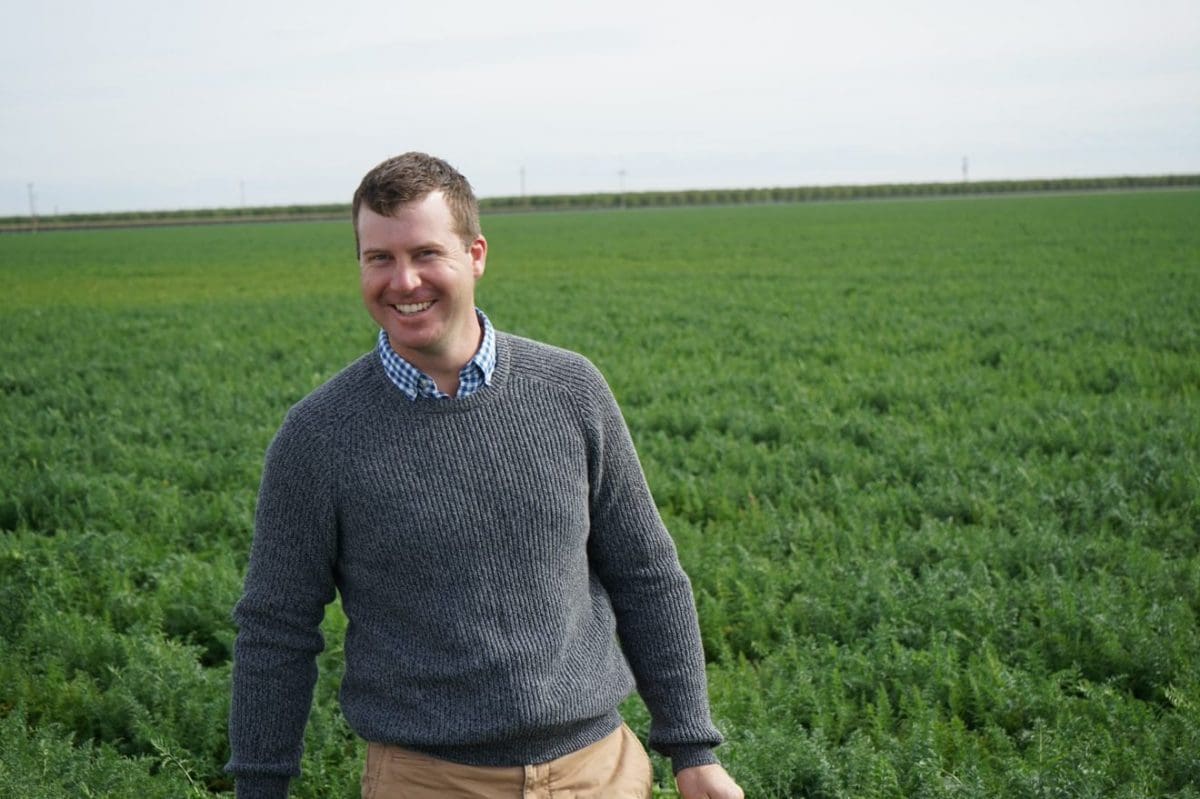
Andrew Sargent
TO BREAK down barriers traditionally stifling the advancement and adoption of agricultural data, Australia needs to change the way AgTech innovation is managed by adopting an ‘open source’ ecosystem that will benefit all stakeholders across the data value chain.
That’s according to 2019 Nuffield Scholar and South Australian farmer, Andrew Sargent, who investigated the open source software options available in the agricultural data sector and projects that could be applied in an Australian context to establish an open data sharing and storage platform.
With support from Grains Research & Development Corporation, Mr Sargent travelled across the United States, Canada, Netherlands, Germany, Austria and Australia, engaging in a series of interviews, farm visits, conferences and presentations to identify the challenges and barriers to adoption and the opportunities open source software offers the agricultural sector.
“Most software and data platforms developed for agriculture are copyrighted, with very few projects offering a freely available open source code to users,” Mr Sargent said.
“Though many other industries have embraced and adopted open source culture, it is still not commonplace in agricultural technologies. As a result, the agricultural industry is restricted to costly, incompatible proprietary systems.
“Travelling in Canada, I was introduced to the open source system, AgOpenGPS, that allows users to set up their own autosteer system using generic off-the-shelf components and create a fully functional system.
“This system has many features similar to existing proprietary systems, but due to the collaborative nature of open source, new features are added regularly in response to requests from users. The agility of this system to adopt and integrate new features would be incompatible in a proprietary system.”
Breaking down barriers
Mr Sargent said it’s vital for the agricultural sector to change how AgTech innovations are managed, in order to break down some of the barriers to adoption of open source systems.
“We need to implement systems that put farmers in the driver’s seat, to develop and readily adopt technological solutions that would enhance efficiency and profitability,” he said.
“To address the issues caused by the lack of open source culture in agriculture, Purdue University in Indiana has created the Open Ag and Technology Systems (OATS) centre to proactively promote open source projects.
“Open source data and algorithm exchange paradigms facilitate data exchange among systems which is critical in achieving data-driven sustainability goals. To support greater data exchange among existing systems, the OATS centre has several projects underway aimed at making agricultural data more accessible and user-friendly.
“Adoption of an open source culture in agricultural software and data will increase the value of that data by allowing easier sharing and analysis, benefiting all stakeholders, from farmers to developers, manufacturers and Research Development Corporations.”
Opportunities
In the report, Mr Sargent acknowledges there are several opportunities available to the agricultural data sector but also highlights the barriers that impede adoption.
“Open source software provides growers with the opportunity to take control of their data and their infrastructure,” he said.
“Though compared to existing proprietary software, the open source systems available often require extra input from the user to set up; from assembling hardware to hosting services for collected data.
“Travelling to Connecticut, I was introduced to FarmOS, a web-based application for agricultural management, planning and record-keeping, which allows growers to record data from proprietary or on-farm sensors.
“To make their software easily accessible to growers, FarmOS partnered with Farmier which offers a hosting service for FarmOS databases, giving growers immediate access to the system without having to set up their own server.”
New entrants
Mr Sargent said more readily available access to an open source ecosystem in Australia would also facilitate a pathway for new entrants into the AgTech and data industry, with ready-made platforms available to build on.
“Greater innovation and adoption of an open source culture in agricultural software will increase value to stakeholders by allowing easier sharing and analysis,” he said.
“Access to regular and informed data will allow for improved planning and decision-making on-farm, enhancing the efficiency and profitability of our local farming enterprises.
“If Australian agriculture is going to realise the gains promised by AgTech and big data, it’s imperative we move beyond the proprietary stalemate we’re in now by championing a new era of AgTech by bringing open source solutions to farmers.”
Source: Nuffield
Applications for the 2021 Nuffield Scholarship program are now open. Find out more at https://www.nuffield.com.au/copy-of-eligibility-value-tenure-1

An interesting read, well done Andrew.